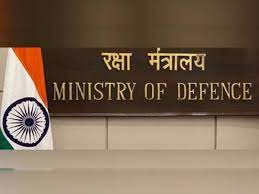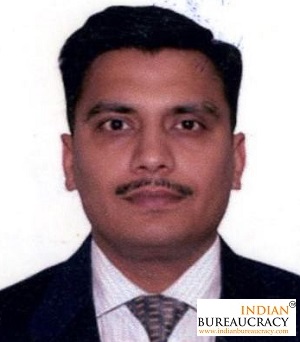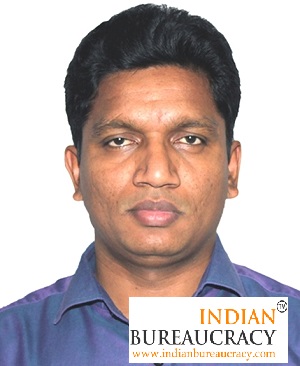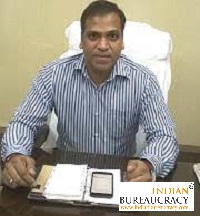
The Army Commanders’ Conference concluded in New Delhi on 2nd April 2024. The biannual event, held in a hybrid format, commenced with a virtual session chaired by General Manoj Pande, Chief of Army Staff (COAS), on 28th March 2024, and was followed by in-person discussions on 1st and 2nd April 2024. The senior leadership of the Army brainstormed a wide array of security-related aspects, including ongoing transformation initiatives, leveraging technology and innovation for capability development, enhancing operational preparedness, addressing emerging security and HR-related issues.
Shri Rajnath Singh, Hon’ble Raksha Mantri, in his keynote address on 2nd April 2024, reaffirmed the nation’s trust in the Indian Army, acknowledging its indispensable role in national security. He applauded the stellar role of the Army in guarding the borders, fighting terrorism and providing aid to the civil administration during crises. The Hon’ble RM exhorted the Army leadership to constantly review doctrinal, structural, & organisational reforms to meet future challenges in view of the evolving security dynamics.
The Raksha Mantri also appreciated the efforts of Indian Army in developing niche technologies in collaboration with indigenous industries and premier educational institutions. Further underscoring the importance of investing in modernisation and technological advancements, he acknowledged appreciable progress made towards the aim of achieving ‘Modernisation through Indigenisation’ under the abiding mantra of ‘Atmanirbharta’.
The Raksha Mantri also reaffirmed the commitment of the Government to the welfare of soldiers, veterans and their families. He emphasised the importance of developing a trained and motivated workforce that can handle the challenges of contemporary combat while being adept at futuristic evolution in warfighting. He called on the leadership to invest in human capital by adhering to the traditions and principles of mutual respect, loyalty, and discipline. Shri Rajnath Singh also released Indian Army UN Journal -2024 encapsulating the theme of ‘Resilience and Adaptability’ on the occasion.
The senior leadership of the Army was also addressed by General Anil Chauhan, Chief of Defence Staff (CDS), General Manoj Pande, COAS, Admiral R Hari Kumar, Chief of the Naval Staff (CNS) and Air Chief Marshal VR Chaudhari, Chief of the Air Staff (CAS).
The CDS complimented formations and the soldiers for their commitment towards security of the borders with a professional approach while at the same time dealing with challenges and embracing the transformational changes enthusiastically. He also exhorted the senior leadership to embrace the aspects of jointness, integration, and technological absorption in sync with the call of the ‘Third Revolution in Military Affairs’.
The COAS during his address complimented the Army fraternity for successfully wading through myriad challenges and embracing the transformational changes with enthusiasm. He called upon the senior leadership to continue pursuing the process of transformation and technology absorption besides adopting the best practices of sister services and modern armies. He also emphasised the need to ensure seamless situational awareness between commanders at all levels and troops on the ground. The COAS also highlighted that there is a constant need to undertake doctrinal and structural reforms by embracing change and being open to new ideas to meet future operational challenges.
The CNS and CAS emphasised the importance of enhanced jointness given the lessons emerging from contemporary conflicts. They underscored the importance of synergy at the grass-roots level between the services for optimum operational outcomes. Sharing the highlights of ongoing initiatives in their respective services, the Chiefs emphasised the necessity to ensure seamless coordination during joint operations and exercises.
The senior hierarchy of the Army was also addressed by Shri Amitabh Kant, G20 Sherpa & former CEO of Niti Aayog and Shri Pankaj Saran, former diplomat and Deputy National Security Advisor. The distinguished speakers alluded to the changing geopolitics, impact of developments in the neighbourhood and the global arena on India, and underscored the ever-growing role and importance of armed forces in India’s rise and future trajectory. They emphasised upon the importance of strategic planning and readiness in order to effectively navigate these complex dynamics in future.
Over the two days, senior Army leadership delved deep into current and emerging security landscapes, contemporary subjects affecting the Indian Army and HR aspects affecting serving personnel, their families and the veteran community. The necessity to align the training with technological advancements to harness the innovation potential of the Indian defence industry was also emphasised. The senior leadership reviewed the progress made on the ongoing transformative initiatives and future thrust areas were identified. The Commanders expressed their satisfaction with the steady pace of achieving ‘Atmanirbharta’ in line with the national resolve.
Key Takeaways
v Organisational and procedural transformation will be undertaken to ensure induction/ absorption of niche technology towards futuristic Capability Development with a focus on Atmanirbharta. Towards this, the innovation potential of Army Design Bureau will be upscaled besides Army Design Bureau Cells being established at Command Headquarters. This is aimed at empowering Command Headquarters, formations and unit commanders in facilitating greater outreach to the industry and identification/ trials of niche technology.
v To further bolster the initiative, option of creating a separate Fund Head will be explored. In addition, test bed brigades/ formations will be nominated to ensure greater efficiency and continuity in trials and finalisation of trial reports. Moreover, to ensure lifetime support, future procurements will include aspects catering for holistic sustenance requirements during contract finalisation stage.
v More opportunities to collaborate with other ministries will be explored, to optimally utilise resources and synergise efforts for enhanced capability building and infrastructure development in border areas.
v Human Resource Management policies will be revised and attuned to facilitate absorption of niche technology with matching training infrastructure. The revised policy will be more innovative towards meeting the requirements of a tech-enabled future-ready Indian Army.
v To ensure realistic wargame and training, feasibility of creating a tailor-made organisation to function as Adversarial Force will be explored.


2XX3.JPG)
0CUW.JPG)





Leave a Reply
You must be logged in to post a comment.